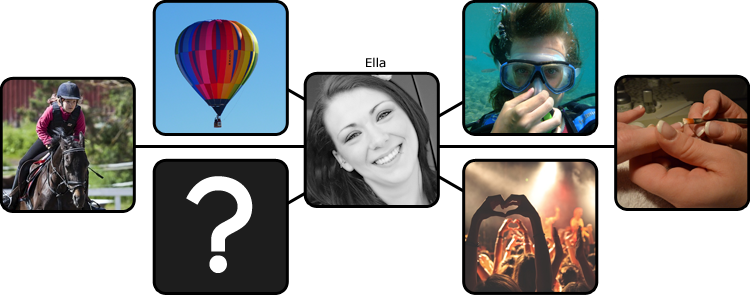Het arrangement Money = happiness h45 is gemaakt met Wikiwijs van Kennisnet. Wikiwijs is hét onderwijsplatform waar je leermiddelen zoekt, maakt en deelt.
- Auteur
- Laatst gewijzigd
- 11-05-2025 19:54:58
- Licentie
-
Dit lesmateriaal is gepubliceerd onder de Creative Commons Naamsvermelding-GelijkDelen 4.0 Internationale licentie. Dit houdt in dat je onder de voorwaarde van naamsvermelding en publicatie onder dezelfde licentie vrij bent om:
- het werk te delen - te kopiëren, te verspreiden en door te geven via elk medium of bestandsformaat
- het werk te bewerken - te remixen, te veranderen en afgeleide werken te maken
- voor alle doeleinden, inclusief commerciële doeleinden.
Meer informatie over de CC Naamsvermelding-GelijkDelen 4.0 Internationale licentie.
Aanvullende informatie over dit lesmateriaal
Van dit lesmateriaal is de volgende aanvullende informatie beschikbaar:
- Toelichting
- Deze les valt onder de arrangeerbare leerlijn van de Stercollectie voor Engels voor havo, leerjaar 4 en 5. Dit is thema 'Money'. Het onderwerp van deze les is: Money = happiness. In deze les staat de vraag centraal of geld gelukkig kan maken. Hierbij wordt gekeken naar het geven en krijgen van cadeaus. Aan de hand van een liedje worden verschillende aspecten van rijkdom behandeld. In de grammaticaopdracht wordt de 2nd conditional behandeld.
- Leerniveau
- HAVO 4; HAVO 5;
- Leerinhoud en doelen
- Engels;
- Eindgebruiker
- leerling/student
- Moeilijkheidsgraad
- gemiddeld
- Studiebelasting
- 3 uur 0 minuten
- Trefwoorden
- 2nd conditional, arrangeerbaar, cadeaus, engels, h45, money = happiness, rijkdom, stercollectie

 The title of this lesson is 'Money = happiness'.
The title of this lesson is 'Money = happiness'.

 Speaking
Speaking by Graham Witcomb
by Graham Witcomb Grammar
Grammar
 Song
Song
